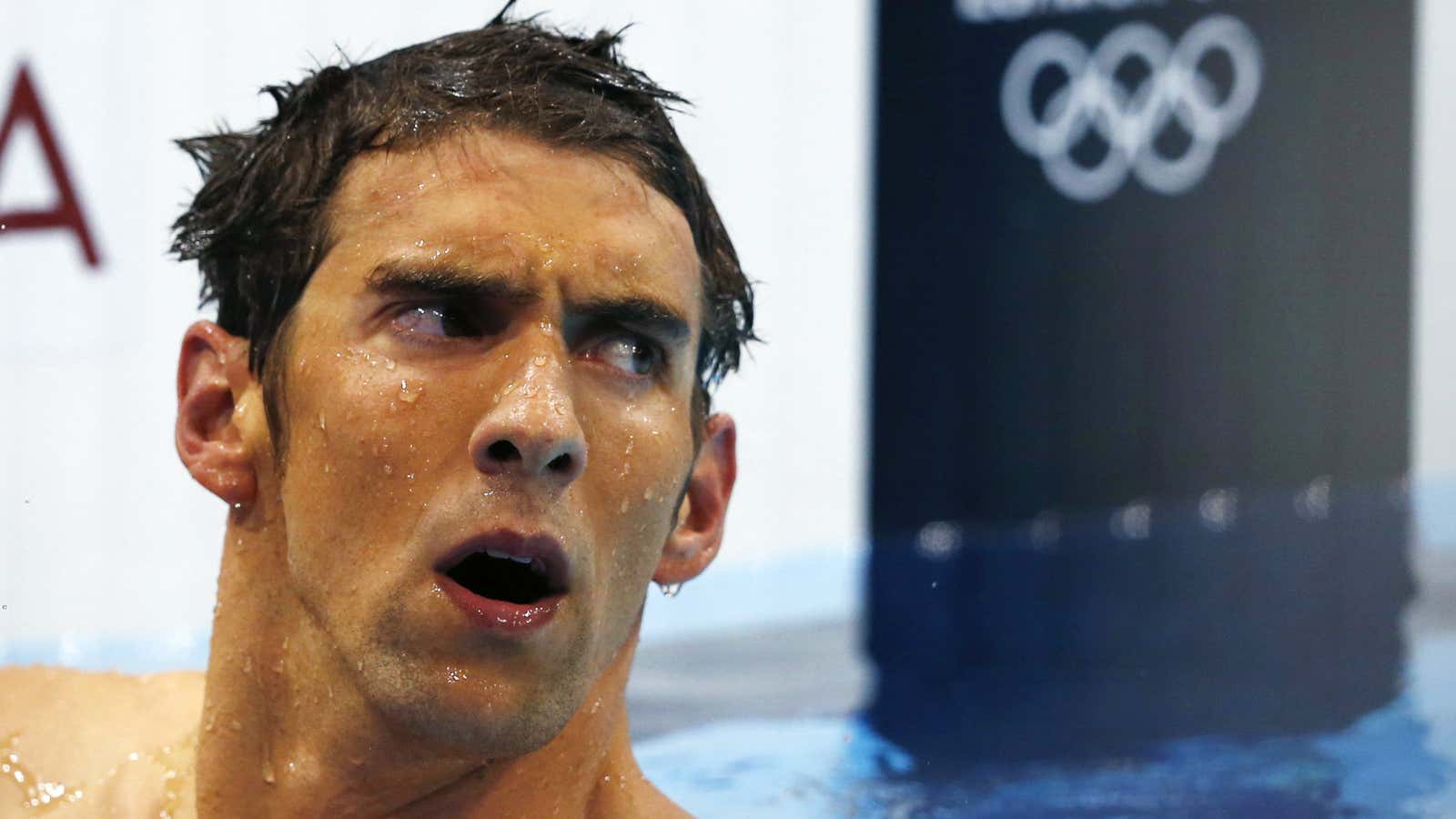All eyes will be on Michael Phelps when he makes his Rio debut, diving into the water to compete tomorrow in the 200 meter butterfly, or possibly tonight in the 4×100 meter freestyle relay should Team USA deploy him.
After a very public fall from grace—a struggle with substance abuse that led to two DUIs and admission to rehab in 2014—Phelps has emerged as an embodiment of hope, optimism and the strength of the human spirit. So what is the psychology behind Phelps and his comeback?
In a recent New York Times profile, Phelps shared that the pressure of being the world’s most decorated Olympian (22 medals, 18 of them gold) was too much to bear. He broke the tension with substance use.
“He had no idea what to do with the rest of his life,” his longtime coach Bob Bowman told the Times. “It made me feel terrible. I remember one day I said: ‘Michael, you have all the money that anybody your age could ever want or need; you have a profound influence in the world; you have free time—and you’re the most miserable person I know. What’s up with that?’”
Phelps had staked his entire identity on his swimming career, staying singularly focused on a goal and achieving wild success, but over the years he did not develop other parts of himself. While in rehab at the Meadows treatment center in Arizona, he came to the conclusion that embracing emotional vulnerability was the only way to get to the other side.
He read books like Viktor Frankl’s Man’s Search for Meaning, Joseph Murphy’s The Power of Your Subconscious Mind, and Rick Warren’s The Purpose-Driven Life. By developing a more complex view of himself, Phelps began to build his psychological strength again, and today—older (31), engaged and a new father—he appears stronger than ever.
His psychological comeback is built around taking a different view of success, one that is not solely connected to his former identity. “I thought of myself as just a swimmer, and nobody else,” he told the Today Show. “… and I finally I just was like, ‘You know what? Screw this.”
In a 2012 profile of Phelps, U.S. Olympic Committee sport psychologist Sean McCann told the Washington Post that mental strength can be broken down into two parts, an “unyielding desire for victory” and a resilience to break through unforeseen obstacles. Few athletes have both.
“The ones who are weak mentally never succeed at the Olympic Games because their vulnerabilities are exposed,” McCann said. “For the absolute best performance, what you need is simplicity and certainty.”
Phelps’ stint in rehab allowed for him to engage with the depths of his vulnerabilities, and build on them. No matter how he performs these next two weeks, getting to Rio was the real feat.
